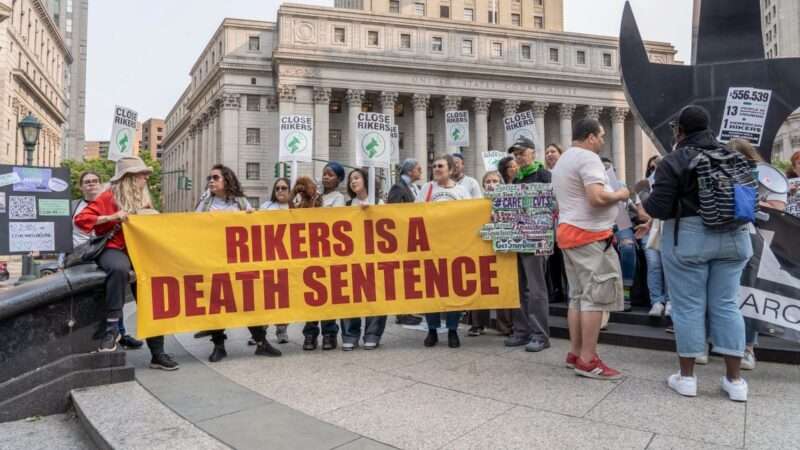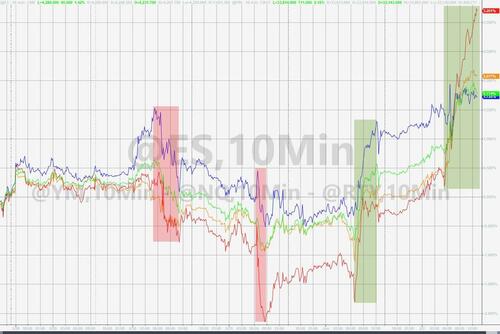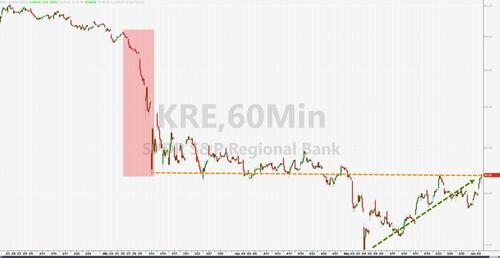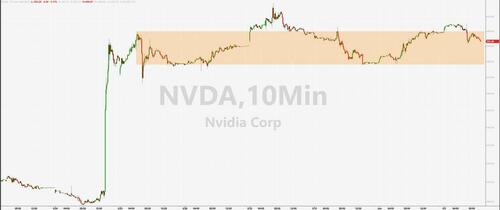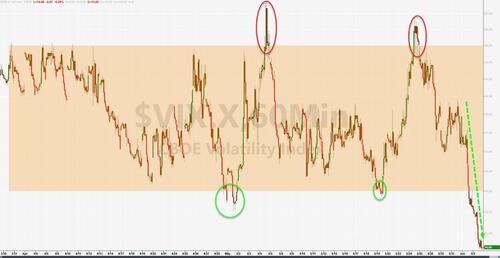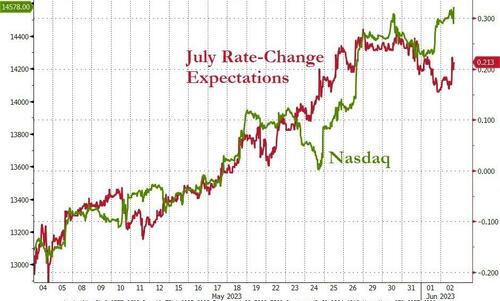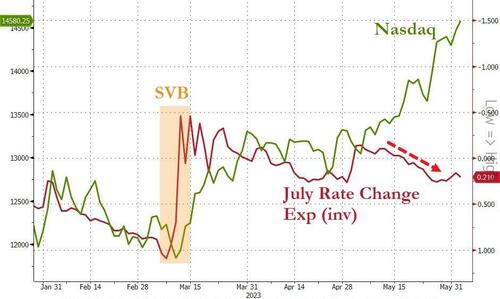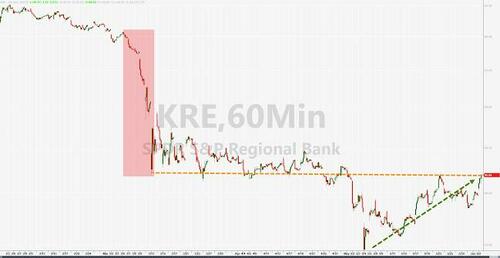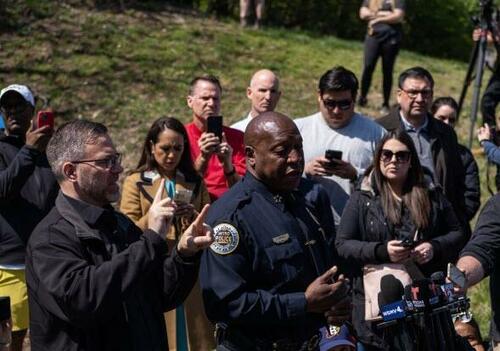There’s been a good deal of comment about the City University of New York law school student graduation speaker (Fatima Mousa Mohammed) who devoted a good deal of her speech to harshly condemning Israel and “Zionism,” as well as capitalism, the New York government, and America more generally. (I include the transcript of the speech and a link to the video at the end of this post.)
Beyond just the criticism, the CUNY Board of Trustees and Chancellor put out a statement saying,
Free speech is precious, but often messy, and is vital to the foundation of higher education.
Hate speech, however, should not be confused with free speech and has no place on our campuses or in our city, our state or our nation.
The remarks by a student-selected speaker at the CUNY Law School graduation, unfortunately, fall into the category of hate speech as they were a public expression of hate toward people and communities based on their religion, race or political affiliation.
The Board of Trustees of the City University of New York condemns such hate speech.
This speech is particularly unacceptable at a ceremony celebrating the achievements of a wide diversity of graduates, and hurtful to the entire CUNY community, which was founded on the principle of equal access and opportunity. CUNY’s commitment to protecting and supporting our students has not wavered throughout our 175-year existence and we cannot and will not condone hateful rhetoric on our campuses.
A few thoughts:
[1.] It seems to me that graduation speeches should be (to use an overused term) as inclusive as possible, to mark an important and happy occasion in a way that the great bulk of the students and their family members in the audience can embrace.
Naturally, they will convey the speaker’s personal views, and those views may have some connection to current ideological controversies. But generally speaking, it’s best if those connections are relatively muted, and are framed in positive ways rather than negative ones. If, for instance (to give a hypothetical from my side of the aisle) a speaker wants to praise economic liberty, he probably should do that rather than rail against the evil regulators or condemn the supposed depravity of his political adversaries.
Now perhaps the speaker here knew her audience, and indeed 95% of the audience enthusiastically supports the view that America is “an empire with a ravenous appetite for destruction and violence”; that boycotting Israel and Israelis is a wonderful thing; that everything must be viewed through a “critical-imperialism-settler-colonialism lens”; that both Israel and the State of New York are murderous; that the NYPD is “fascist”; that everyone must fight against, among other things, “capitalism” and “Zionism”; and that the “oppressors” are not just wrong but “depraved.” She was, after all, selected to speak, apparently by the 2023 class, though I’m not sure how that selection process worked, and how many people deliberately chose her hoping that she’d give a fiery ideological diatribe.
But my guess is that, even at CUNY Law, the message was likely to be profoundly alienating to many in the audience—a message to sour rather than to enhance graduation day—even if it’s enthusiastically accepted by many others. [UPDATE: For a similar argument about a similar controversy in 2019, see Prof. Steve Lubet’s post on Why It Is Wrong to Harangue a Captive Audience at Graduation.]
[2.] This having been said, the CUNY Trustees don’t limit their condemnation of the speech to graduation ceremonies. Their statement says more generally that the speech was “hate speech,” which “should not be confused with free speech and has no place on our campuses or in our city, our state or our nation.”
That seems to convey the message that such speech (or perhaps just the anti-Israel part of the speech) is not just “hate speech”—a notoriously vague term—but is actually not “free speech.” The implication is that those who say such things at CUNY, even outside a graduation ceremony, may be punished, on the theory that their speech “should not be confused with free speech.”
That can’t be right, I think. Even if it’s legal and feasible to require public university graduation speakers to be relatively mild in their rhetoric (and I’m not sure whether it is), certainly such speech is fully protected by the First Amendment when said in many contexts at CUNY: a talk sponsored by a student group, leaflets distributed outside an event, a conversation among students, and more.
[3.] One way of thinking about this, for both sides of the debate, is to ask how we’d react if a hypothetical graduation speaker at, say, the University of Florida law school spent a good chunk of talk on the following. These are basically passages from the CUNY speaker’s speech, with Zionism and Israel and anti-Israel rhetoric replaced with Palestinian nationalism or Palestinians and the like, and CUNY’s actions against Israel replaced with hypothetical actions against the Palestinian territories:
In this moment of celebrating who we are, I want to celebrate Florida Law as one of the few, if not the only, law schools to make a public statement defending the right of its students to organize and speak out against [Palestinian nationalism]….
This is the law school that passed and endorsed [a boycott of people and businesses from the Palestinian territories] on a student and faculty level…. As [the Gaza government] continues to indiscriminately [engage in violent attacks on Israel], murdering the old the young, … as it encourages [Palestinian terrorists] to target [Israeli] homes and businesses, … our silence is no longer acceptable….
We are the student body and faculty that fought back when investor-focused admin attempted to [interfere with the boycott of Palestinians], saying loud and clear that [Israel] can no longer be the exception to our pursuit of justice, that our morality will not be purchased by investors….
Let us remember that [Israel], just this week, has been bombed with the world watching…. That there are [Israeli] political prisoners like [members of a group that has been accused of targeting Palestinians for violence] in US prisons …. That yesterday marked one year since the murder of [a US citizen by Palestinian military forces] ….
May we rejoice in the corners of our [Florida] apartments and dining tables. May it be the fuel for the fight against [Palestinian nationalism].
Regardless of our views about who’s right and who’s wrong in the Israeli-Palestinian conflict, I’m inclined to say that we should have the same reaction as I describe above. This material isn’t something that a graduation speaker should be saying to an audience that likely includes many people with different views on such subjects. It may be well-suited to a talk to a pro-Israel group, or to a debate on who’s right and who’s wrong in the Middle East, but not to a graduation. At the same time, such statements are by themselves indeed exercise of free speech, even if we may think they’re not suitable to this particular occasion. [UPDATE: Just to be clear, I note above the question whether it’s “legal and feasible to require public university graduation speakers to be relatively mild in their rhetoric”; but my point here is that the contents of the statements itself is free speech, and isn’t somehow stripped of constitutional protection under some “hate speech” theory.]
As to whether such speech is “hate speech,” that’s very hard to tell, given the vagueness of the definition of “hate speech.” Our legal system avoids this question by not treating “hate speech” as a legally significant term; I avoid it by not using the label in my analyses more broadly. But if others disagree and use the term “hate speech,” they’ll need to figure out which of the various definitions should be used, and then figure out how to apply it to speech such as the CUNY Law graduation speech or my hypothetical above. (For instance, is speech that harshly condemns Palestinian nationalism intended to condemn a particular nationality, or to incite hostility to that nationality? Or is it just meant to promote hatred to a particular ideological belief system that is closely tied to a nationality—and would that be enough to keep the speech from being “hate speech”?)
[4.] Finally, here’s a transcript of the speech that my research assistant prepared, so you can review everything in context for yourselves; I also link to the video below:
Hello everyone. Thank you, Dean Setty for that introduction. I want to start by greeting you all with the greeting I know best: Assalamu’alaikum warahmatullahi wabarakatuh, may peace and blessings be upon you all. My name is Fatima Mousa Mohammed, and I come to you all from the rich soil of Yemen raised by the humble streets of Queens.
It is my honor, and I’m humbled to be standing before you all as a selected class speaker— daytime speaker—of the class of 2023.
To all our loved ones, our parents, grandparents, siblings, partners and friends, our comrades, aunts and uncles, and all the little kids in the crowd. Those who made it, and those who couldn’t. We wouldn’t be here without you. Thank you for your unwavering love. My mom’s crying so [inaudible] …. Thank you for your unwavering love and support. This celebration is yours. This is a moment for those who paved the way for us to be here. Those who wiped out our tears, those who are waiting ahead, and to those we now must open the doors. And now to the graduating class of 2023. Before I begin I want to tell you all that my grandparents are in Yemen right now and they assured me that there are fireworks lighting up the city of Aden, in celebration of all of us. So just know that oceans away, there’s a whole city on the other end of the earth, it feels like, celebrating you all.
To the class of 2023, the moment we have all been waiting for is finally here. The class that began this journey during a season of grief, a season where ambulance trucks were the only noise in town and our neighborhoods became sort of ghost towns. Where we watched our immigrant parents keep the city on its feet as they saw bodies packed into refrigerated morgue trucks. The class that saw nothing but black zoom square boxes for the first two years—there’s a lot I can say about the loss and the pain we’ve all endured over the last few years, but I am reminded of Frantz Fanon’s words. “Things get bad for all of us almost continually, and what we do under the constant stress reveals who and what we are.”
So I’m here to celebrate who and what we are, who you are. Like many of you, I chose CUNY School of Law for its articulated mission to the law in the service of human needs. One of very few legal institutions created to recognize that the law is a manifestation of white supremacy that continues to oppress and suppress people in this nation and around the world. We joined this institution … [applause] we joined this institution to be equipped with the necessary legal skills to protect our communities, to protect the organizers fighting endlessly, day in and out, with no accolades, no cameras, no votes, no PhD grants, working to lift the facade of legal neutrality and confront the systems of oppression that wreak violence on them. Systems of oppression created to feed an empire with a ravenous appetite for destruction and violence. Institutions created to intimidate, bully, and censor and stifle the voices of those who resist. In this moment [applause] …
In this moment of celebrating who we are, I want to celebrate CUNY Law as one of the few, if not the only, law school to make a public statement defending the right of its students to organize and speak out against Israeli settler colonialism.
That this … [applause] that this is the law school that passed and endorsed BDS on a student and faculty level. Recognizing that absent a critical-imperialism-settler-colonialism lens, our work and the school’s mission statement is void of value. That as Israel continues to indiscriminately rain bullets and bombs on worshippers, murdering the old the young, attacking even funerals and graveyards, as it encourages lynch mobs to target Palestinian homes and businesses, as it imprisons its children, as it continues its project of settler colonialism, expelling Palestinians from their homes, carrying the ongoing Nakba that our silent—that our silence is no longer acceptable.
We are … We are the student body and faculty that fought back when investor-focused admin attempted to cross the BDS picket line, saying loud and clear that Palestine can no longer be the exception to our pursuit of justice, that our morality will not be purchased by investors. We are the class … We are the class that fought for incarcerated clients and zealously filed for their clemency applications with nearly zero institutional support. We are the class that fought for clients to get asylum, that went to court to reunite families torn apart by ACS and the family surveillance. We are the class that organized against using LEXIS, a legal research company contracted with ICE.
And we did all of this in spite of the racism, in spite of the selective activism, the self-serving interests of CUNY Central, an institution that continues to fail us, that continues to train and cooperate with the fascist NYPD, the military, that continues to train IDF soldiers to carry out that same violence globally. A larger institution committed to its donors, not to its students. I am here to remind us all that our existence on its own today in this room is revolutionary. That as we embark on our legal careers, we must practice a discipline of truth and courage and hold ourselves true to the mission statement we came to this school for. So today, I celebrate the courage and bravery that got us here, and I celebrate every moment of resilience that sets us apart as the number one leading public interest school in this nation.
I see … I see before my eyes, brilliant future public defenders. I see brilliant immigration attorneys, housing attorneys, business attorneys, civil rights attorneys and movement lawyers. I see professors and librarians. I see before me future practitioners who will work on contracts to end partnerships with ICE and not intellectual property contracts to secure designs for the newest drone technology murdering children. I see future lawyers who will defend tenants in court and not those that dispossess our communities from their homes. I see future attorneys who will protect the communities terrorized by the surveillance state and not protect the agents of oppression that carry out that terror. Future lawyers who will fight to keep families together and not tear them apart. I see future lawyers who will work to make this world a better place ,one person, one movement at a time. I see a class to be rejoiced, a class to be celebrated, a class to be remembered today and in the years ahead. And as we celebrate who we are today, let us actively fight against the collective amnesia and cognitive dissonance that limits our understanding of the world to what is only directly before our eyes.
Let us remember … Let us remember that Gaza, just this week, has been bombed with the world watching. That daily, brown and black men are being murdered by the state at Rikers. That there are Palestinian political prisoners like HLF in US prisons, that there are refugees at the southern border still locked up. That yesterday marked one year since the murder of US journalist Shireen Abu Akleh, and that the murder of black men like Jordan Neely by a white man on the on the MTA is dignified by politicians like Eric Adams and Senator Chuck Schumer.
We leave our classes and we leave the school to a world that so desperately needs us to stand alongside those who have given up, for the sake of liberation, far more than we could imagine. So may the joy and excitement that fills the auditorium here, may the rage that fills this auditorium, dance in the hallways of our elementary schools, in our home villages of Sheikh Jarrah, Gaza, and Yemen, Haiti, Puerto Rico, and the Philippines. May we rejoice in the corners of our New York City bedroom apartments and dining tables. May it be the fuel for the fight against capitalism, racism, imperialism, and Zionism around the world.
No one person will save the world. No single movement will liberate the masses. Those who brunt the ferocity of the violence, those who carry the revolution. The people, the masses, those who brunt the ferocity of the violence, those who need our protection, they will carry this revolution. The revolution that lives so loudly despite not being televised. No longer are we going to capitulate to oppressors. No longer are we going to put our hope in their depraved consciousness. And, as the great Malcolm X said, “We declare our right on this earth, to be a man, to be a human being, to be respected as a human being, to be given the rights of a human being in this society, on this earth in this day, which we intend to into existence by any means necessary.”
So one client at a time, one case at a time, one hearing at a time, we will show up for communities. We will show up for ourselves. And we will protect the fight that brings us all closer to the fall of all oppressive institution. A reality that is only myopic and unrealistic to the oppressors, but is the inevitable future for the oppressed, for oppressed people everywhere. For greater empires of destruction have fallen before and so will these. So to the class of 2023, the fight begins now.
https://youtu.be/2RpvTrB9P_M?t=4581
The post Graduation Speeches, "Hate Speech," and the CUNY Law Controversy appeared first on Reason.com.
from Latest https://ift.tt/LSkbluU
via IFTTT

